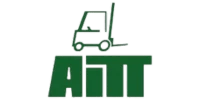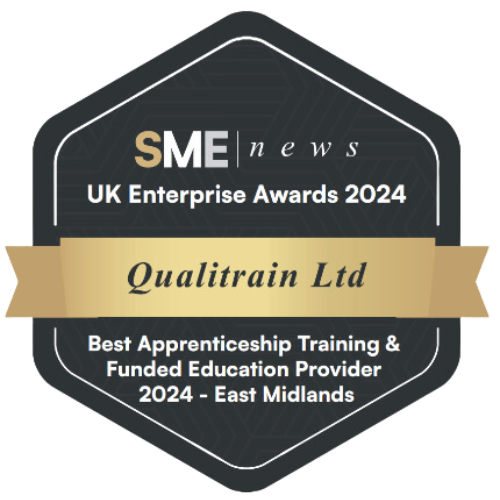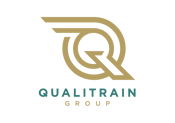Maintaining Lifting Equipment
Technical skill building
Lifting Equipment Technicians are self-motivated problem solvers who work with organisations to resolve issues and come up with solutions to their everyday needs.
They repair, maintain, modify, inspect, test, install and assemble lifting equipment to ensure its suitability and safety for a continued period of service.
.webp?width=1414&height=690&name=Lifting-Equipment-Apprenticeship%20(1).webp)
Core Knowledge
Apprentices will learn the following core knowledge:
- The types, applications and unique characteristics of lifting equipment, including static and manually operated equipment, derivatives and the associated technology and the characteristics and physical mechanical properties of materials used in the manufacturing of lifting equipment
- Diagnostic and assessment principles required to maintain, repair and modify the mechanical aspects of lifting equipment to meet manufacturer specifications
- Current legislation and Standards for lifting equipment, components, tools and equipment
- Legislation and required compliance within the lifting equipment industry, including lifting equipment regulations (for example Lifting Operations Lifting Equipment Regulations (LOLER), Machinery Directive, Provision and Use of Work Equipment Regulations (PUWER), Supply of Machinery (Safety) Regulations, Health and Safety at Work Act, Control of Substances Hazardous to Health (COSHH), Working at Height, Confined space working, manufacturer’s instructions and industry standards.
- Workshop and onsite operations which may include ordering, stock control and correct use of documentation such as order forms, repair forms, quarantine forms and reports of thorough examination
- Types of customer interaction and customer service techniques including when to contact the customer, the tone that should be adopted, how to time and follow up communication – both verbally and in writing, and how to adjust the approach to take account of customers’/clients’ needs
- Commercial practices, products and services
- How to ensure the safety of self, colleagues and anyone in the working area (risk/hazard identification); manual handling, correct selection and use of Personal Protective Equipment (PPE), Risk Assessment and Method Statements.
- Safe disposal and recycling of associated waste (including waste oils, cleaning fluids, batteries, tyres, etc.). Environmental policies.
- The rights and responsibilities of an employee and employer, including the importance of respecting people from diverse backgrounds and treating people fairly
- Assessment of equipment for continued safe use, such as how to identify the repair required, component compatibility, time and materials required to fix
- Knowledge of manufacturer specifications and industry working practices - understanding pre-use checks, storage of equipment, when and where to use them, assembly, maintenance and safe use instructions, knowing the importance of following manufacturers' specifications and organisations' procedures when making repairs and installing lifting equipment
- Principles of handling hazardous equipment, materials and substances, their safe handling, preservation, storage & shipping of damaged items, emergency procedures, knowing when to ask for third party advice and guidance
- Standard operating functions of lifting equipment in normal use
- Pass or fail inspection criteria for equipment when failed or is not fit for purpose, such as identification of common defects and parts that regularly break or go missing and need to be replaced, including chain wear features, missing or broken latches in hooks
- Operation of manual or IT applications used in the workshop and on-site environment, such as excel, search engines and company reporting systems
- Scheduling and project management techniques; planning and the importance of meeting project deadlines (how to manage oneself to meet company targets)
- Causes of defects and maintenance issues and problem solving. How to identify likely causes of damage, for example. manufacturing fault, wear, misuse or overloading
- How to prepare a complete report according to legislative requirements and who to contact about defects and how to address them, including when to notify statutory bodies
- How to calculate in use operational safe working loads considering working conditions, method of use for the equipment and operating environment, such as how to work out a percentage, mode factors, uniform load method, trigonometric method calculations, algebra and Pythagoras theorem, Units of measure, including imperial and metric systems and how to convert them
- Manufacturing techniques and resulting impact on safe and correct operational use of equipment
- Heat treatment, principles and processes - including critical ranges and the implications of not achieving correct temperature ranges
- Stress and strain and their impact on material behaviour
- Verification methods and how and when to use them. This includes destructive and non-destructive testing, which could be visual examination, operational / functional testing, load testing, proof load testing, Magnetic Particle Inspection (MPI), dye penetrant, bend testing, Eddy current testing, X-ray testing, ultrasound testing, Izod testing and Charpy testing
- Marking requirements and techniques
- How to use measuring equipment and calibrated tools including digital verniers, torqueing tools, dial gauges, load cells, compression tools and micrometers
Core Skills
Apprentices will learn the following core skills:
- Use knowledge, experience and judgement to undertake inspections/examinations in accordance with manufacturer's instructions and guidelines and industry standards
- Estimate time required to complete a task
- Identify components that require repair, replacement or discard and diagnose faults
- Repair or replace component parts in accordance with manufacturer's guidelines and industry standards
- Assemble, dismantle and reassemble new and used lifting equipment
- Complete routine maintenance on items of lifting equipment in accordance with manufacturer's instructions, guidelines and industry standards
- Manufacture/assemble steel wire rope sling in accordance with the applicable and current EN, BS, or ISO manufacturing standards (or other standard specified by the client) and techniques or specifications
- Measure and assess wear tolerances and deformation in line with manufacturer instructions/guidance and industry standard
- Read and interpret technical drawings, schematic parts diagrams, load charts and technical specifications
- Research information using hard copy and digital formats, e.g. referring to LOLER, manufacturers specifications, standards
- Log and record work activities and prepare reports, such as a Report of Thorough Examination, Examination Defect Report, timesheets
- Identify and use tools and measuring devices required for a task, for example verniers, load cells, tape measure, steel rule
- Maintain a clean, tidy and safe working area
- Apply company quality control measures
- Apply knowledge of lifting equipment to appropriately guide customers in the selection of lifting equipment for the task
- Work in accordance with Safe Systems of Work and apply control measures as required (such as Health and Safety at Work Act, Working at Height, Risk Assessment and Method Statements)
- Apply safe manual handling techniques
- Effectively communicate both verbally and in writing
- Identify and use Personal Protective Equipment (PPE)
- Develop safe systems of work, including risk assessments and method statements, Specifying manpower required, Specifying qualifications, training and experience requirements, Identifying safe methods of access and transportation, Identifying correct PPE for the task, Specifying work location and environment, plant, machinery, tools and equipment, Identifying the applicable statutory and customer safety standards that must be complied with
- Identify toxic and hazardous substances and environments and apply control measures
- Dispose of equipment, components and substances in accordance with environmental regulations, industry standards and company policy
- Control and manage spills
- Perform different types of tests to verify lifting equipment, eg light load test, proof load, function test
- Use lifting equipment safely
- Install lifting equipment in accordance with manufacturers' specification and industry working practices
- Mark lifting equipment in accordance with industrial standards
Entry Requirements
Although there are no statutory or regulatory entry requirements, this occupation does require employees to have a firm understanding of mathematical principles, therefore typically employers will require applicants to hold a level 2 qualification in mathematics.
Additional Information
Route: Engineering and manufacturing
Minimum duration to gateway: 24 months (this does not include EPA period)
Maximum funding: £12,000
What Our Clients Say About Us
Our Accreditations & Awards








.webp?width=150&height=150&name=IPAF%20Member%20(1).webp)
Our Accreditations & Awards









.webp?width=150&height=150&name=IPAF%20Member%20(1).webp)

Contact Information
Address: Genesis Centre, 32-46 King Street, Alfreton, Derbyshire, DE55 7DQ
Phone Number: 01773 417340
Email Address: info@qualitrain.co.uk

Get In Touch With Us!
From Our Blog
Stay up to date with what is new in our industry, learn more about the upcoming products and events.

Why Take a Lean Assessment?

The Benefits Of A Supply Chain Warehouse Operative Apprenticeship


